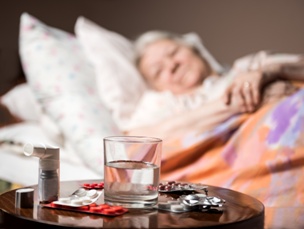 “There is absolutely no room in America’s healthcare system for any situation that violates quality or safety standards.” These are words written in a March 5, 2019, blog post by Seema Verma, Administrator of the Centers for Medicare and Medicaid Services (CMS).
“There is absolutely no room in America’s healthcare system for any situation that violates quality or safety standards.” These are words written in a March 5, 2019, blog post by Seema Verma, Administrator of the Centers for Medicare and Medicaid Services (CMS).
In the same blog post, Administrator Verma goes on to issue new guidelines to address health and safety regulation violations that are considered to be immediate jeopardy situations or situations that “cause serious harm or death to a patient and require immediate action to prevent further serious harm.”
What’s Required in Immediate Jeopardy Situations
The new guidance does not change what CMS requires federal and state inspectors to do, which includes the following:
- Identify situations that could cause immediate and serious harm
- Thoroughly investigate situations that could cause immediate and serious harm
- Quickly resolve situations that could cause immediate and serious harm
CMS’s most significant penalties may be imposed on a nursing home or other entity that is found to have placed patients in immediate jeopardy.
While none of this changed in 2019, CMS did provide additional information about how to identify immediate jeopardy situations.
Identifying Immediate Jeopardy
Under the new guidelines, an investigator should identify an immediate jeopardy situation if the following three conditions are present:
There is noncompliance with a health or safety regulation.
Prior to the 2019 changes, investigators needed to find culpability or fault in order to make an immediate jeopardy finding. CMS has lowered that standard to noncompliance. A finding of fault is not required.
The noncompliance creates a likelihood that a serious injury, harm, impairment, or death will occur.
The standard used to be that there was potential for serious injury, harm, impairment, or death. Now, the standard is higher, requiring a likelihood that one of these things will occur. Likelihood is defined as a reasonable expectation that serious injury, harm, impairment, or death will occur. Serious injury, harm, impairment or death is defined as a significant decline in physical, mental or psychosocial functioning, amputation, disfigurement, excruciating pain that is more than transient pain, life-threatening situations, and death.
Immediate action is required to prevent serious injury, harm, impairment, or death.
Even if an individual who has already been hurt is no longer at the nursing home, immediate action is required to prevent further harm to other nursing home residents.
There are no health and safety regulation violations that automatically result in a finding of immediate jeopardy. Instead, all three elements of the standard must be met.
Any time immediate jeopardy is identified, the finding must be documented according to the CMS rules.
The new rules for identifying immediate jeopardy are supposed to protect nursing home residents and others from dangerous situations. However, there are no regulations or procedures that will eliminate all risks. Ultimately, nursing home safety comes down to the policies and procedures of each nursing home and the actions of each nursing home worker.
If your loved one is a victim of nursing home negligence or abuse, he or she may have the right to sue for damages. By pursuing legal action, your loved one may hold the nursing home accountable and help discourage future violations of health and safety regulations that result in dangerous situations for nursing home residents. This, like the immediate jeopardy standard, may be an important factor in promoting nursing home safety. It could also result in a financial recovery for your loved one which may include compensation for medical costs, out-of-pocket expenses, physical pain, emotional suffering, and other losses.
Has Your Loved One Been Injured In A Nursing Home?
If you believe your loved one is being subjected to nursing home abuse you need to speak with an experienced Kentucky nursing home neglect attorney as soon as possible. Contact us online or call our office directly at 888.450.4456 to schedule a free consultation.
Related Links: